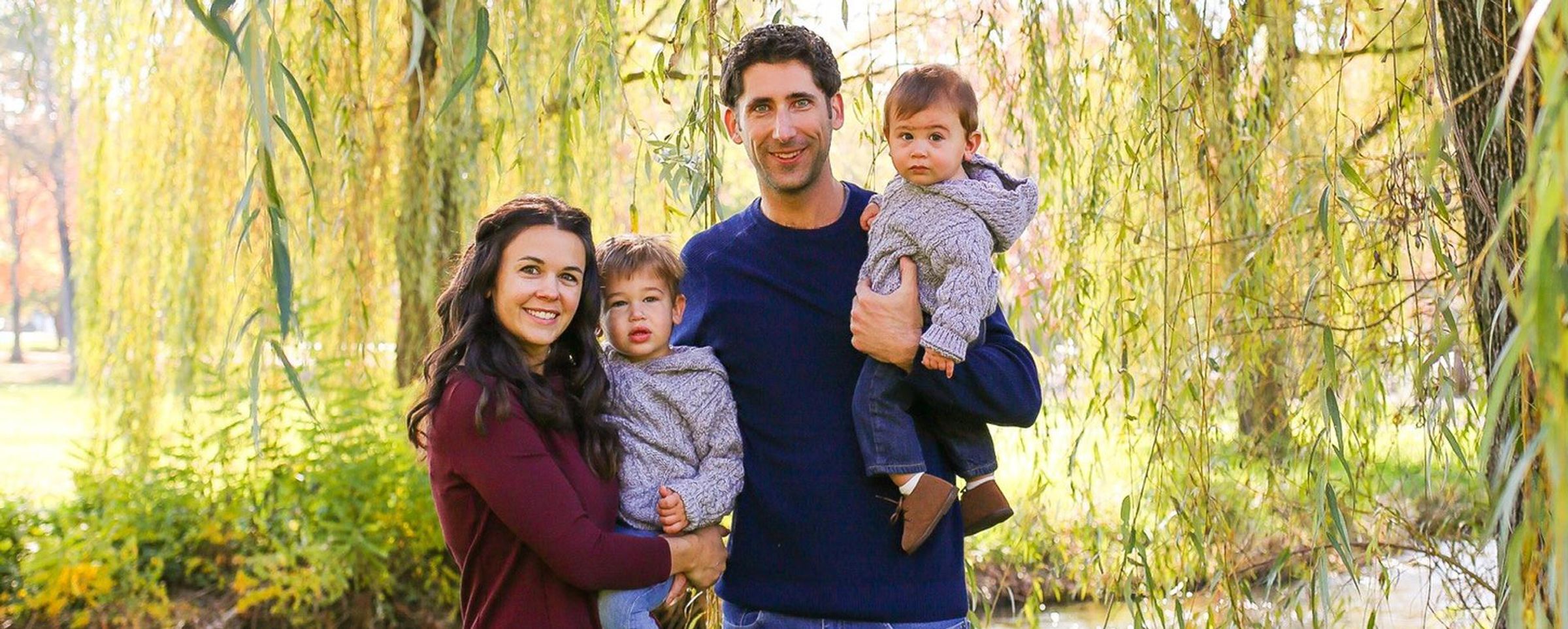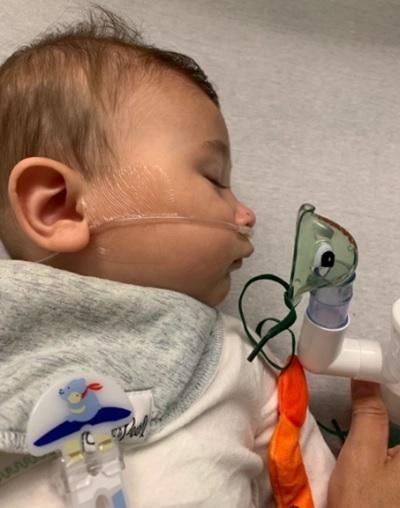Stories Behind the Statistics: One Parent’s Impassioned Plea for All Infant Protection Against RSV – and a Positive Outlook on the Future

By Dr. Michael Greenberg, Vice President, Medical Head Vaccines, North America
Over the last several months, our newsfeeds have been flooded with headlines on the spike in respiratory syncytial virus (RSV) cases. An alarming surge of pediatric hospitalizations due to RSV and influenza also prompted the American Academy of Pediatrics (AAP) to ask the White House to declare an emergency to support the national response to this public health crisis. While these articles and actions help illuminate the severity of RSV and its devastating impact on babies, families, and our communities, as both a pediatrician and someone on the front lines of innovation, I’ve long believed we need to further magnify the stories behind the statistics, like that of David Barkley's family, to help accelerate the much-needed changes to our prevention paradigm.
“When it comes to infectious diseases, my sons – Nolan and Bennett – have quite the rap sheet. Their experiences range from the common, mild, and easy-to-treat, like conjunctivitis, strep throat, and ear infections, to no-holds-barred diseases, like Covid-19, hand, foot, and mouth disease, scarlet fever, and pneumonia. Whether from lack of sleep, or from the sustained stress of this revolving door of illness, these infections have blurred together in my memory. All, that is, except for one. The only one severe enough to award us a multi-night hospital admission. The only one where we felt utterly helpless, watching our baby’s abdominal muscles contract with every rapid, shallow breath. The only one that made me truly fearful of what might happen overnight: RSV.
My wife and I had known about this disease, as it was a standing topic in our respective workplaces. For her, at one of the leading pediatric hospitals in the country, and for me, within the walls of Sanofi’s U.S. Vaccine business. In hindsight, no amount of knowledge could have prepared us to see our six-month-old Bennett wheezing, flaring his nostrils, struggling to breathe, fighting for his life.”

Sanofi colleague David Barkley’s sons, Nolan and Bennett
This is the story of my colleague David Barkley and his family – and while it’s harrowing, it’s also unfortunately far too common. RSV is the leading cause of hospitalization in babies under one.1 David’s experience reminds me why there is an urgent need for all infant protection against RSV – and why we are fighting for change now.
The Burden of RSV, An All-Infant Disease
Often misperceived as a virus that primarily affects premature or high-risk babies, parents may be surprised to learn that approximately 75% of the U.S.’ RSV burden occurs in healthy, term-born infants,2 just like David’s son, Bennett. And although it’s a common, contagious illness, RSV can lead to serious lung infections like bronchiolitis and pneumonia, for which there are few treatment options.3-4 Supportive care like oxygen, fluids and monitoring are often the only course of action available5 – and as David described, watching and waiting can be excruciating despite knowing your baby is in good hands with the hospital team.

Six-month-old Bennett hospitalized with RSV
The burden of RSV is not limited to babies and their families; it affects our healthcare system too. Results from our review of four U.S. health systems show that infant hospitalizations and ICU admissions for RSV-bronchiolitis were at historic highs during the early 2022 virus season.6 Unsurprisingly, hospitals and health systems have struggled to keep up with the increased demand for care, resulting in longer wait times and overcrowding in emergency departments, as well as a shortage of critical resources such as hospital beds and medical personnel.6
Championing Change in RSV Prevention
A common theme unites all the stories I’ve read on RSV this winter virus season: people want preventative interventions for all infants.
Luckily, change is on the horizon. As positive results from clinical research on RSV continue to be shared, most recently at ReSViNET’s RSVVW'23 conference held this month in Lisbon, Portugal (which focuses on novel RSV preventive and therapeutic interventions), I am increasingly optimistic that we’ll never have to experience another RSV surge quite like this one, and that stories like David’s will become fewer and far between.
Finally, once protective options are approved, it will be critical to ensure equitable and consistent access for all children, especially those historically and unfortunately left behind. Sanofi supports the Vaccines for Children (VFC) program as the best choice to make broad coverage a reality.
There’s perhaps no one better than David to sum up the significance of this moment:
“In order to get in front of RSV, we must protect all infants against it."
References:
- Leader S, Kohlhase K. Respiratory syncytial virus-coded pediatric hospitalizations, 1997 to 1999. The Pediatric infectious disease journal. 2002;21(7):629-32.
- Gantenberg JR, van Aalst R, Zimmerman N, et al. Medically Attended Illness due to Respiratory Syncytial Virus Infection Among Infants Born in the United States Between 2016 and 2020. J Infect Dis 2022; 226(S2): S164–74.
- Respiratory Syncytial Virus (RSV). Centers for Disease Control and Prevention. RSV Transmission. https://www.cdc.gov/rsv/index.html. Accessed February 2023.
- Respiratory Syncytial Virus Infection (RSV): Infants and Young Children. Centers for Disease Control and Prevention. https://www.cdc.gov/rsv/high-risk/infants-young-children.html. Accessed February 2023.
- Simoes, E. A. Challenges and opportunities in developing respiratory syncytial virus therapeutics. Journal of Infectious Diseases, 211(suppl 1). 2015, https://doi.org/10.1093/infdis/jiu828
- Wood MD MPH, C. Infant hospitalizations and ICU Admissions for Bronchiolitis and RSV-BRONCHIOLITIS are at historic highs during 2022 early seasonal disease: results from Four US health systems. 2023, ReSViNET.